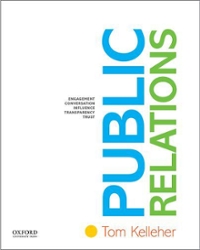Question
(a)The table below gives the values of different expenditures in a particular nation during 2020. Item Dollars (Billions) Consumption expenditure. 3,121 Investment. 887 Government purchases
(a)The table below gives the values of different expenditures in a particular nation during 2020.
Item
Dollars (Billions)
Consumption expenditure.
3,121
Investment.
887
Government purchases of goods and services.
2031
Exports of goods and services.
505
Imports of goods and services.
703
Required
(i)What was the value of net exports of goods and services in 2020?
(ii)What was the nominal GDP equal to in 2020?
[2 marks]
[2 marks]
(b)The table below presents the production and prices in a very small economy. Use 2015 as the base period.
2015
2016
Item
Quantity
Price
Quantity
Price
Wheat (kg)
5000
$1.50
5500
$1.65
Eggs (kg)
2000
$1.20
2100
$1.55
Bananas (kg)
1000
$1.60
1000
$1.60
Required
(i)What are the nominal and the real GDP equal to in 2015?[1+1=2 marks]
(ii)What are the nominal and the real GDP equal to in 2016?[1+2=3 marks]
(iii)Explain the advantage of measuring GDP in real terms rather than nominal terms, when studying movement in a nation's GDP over time.[2 marks]
(c)In country B the GDP per capita is $5000 per person, but most of the population is starving. Yet in country C, the GDP per capita is $4000 per person but the population is happy and well fed.
Required
With reference to the above example, identify and explain at least three weaknesses in the use of GDP as a measure of national welfare.
[6 marks]
[Question 4 = 17 marks]
Question 5
(a)Explain, using an example, the effect that an appreciation of exchange rate has on a country's competitiveness in the export and import markets.
[6 marks]
(b)In 2020 Australian produced sugar cost $0.80 per kilo (AUD) and similar sugar produced in Fiji cost $1.00 per kilo (FJD). If the nominal exchange rate was 1.59 FJD/AUD, determine the price of the Fiji produced sugar expressed in Australian dollars, and thus identify which sugar was more expensive? Which country had a comparative advantage in producing sugar?
[1+1+1=3 marks]
(c)If major buyers of Australian coal reduce their demand in response to concerns about the climate impact of coal, explain what you would expect to happen (ceteris paribus) to the Australian exchange rate, relative to the currencies of those coal buying countries. Feel free to include a diagram in your answer.
[5 marks]
[Question 5 = 14 marks]
Step by Step Solution
There are 3 Steps involved in it
Step: 1

Get Instant Access to Expert-Tailored Solutions
See step-by-step solutions with expert insights and AI powered tools for academic success
Step: 2

Step: 3

Ace Your Homework with AI
Get the answers you need in no time with our AI-driven, step-by-step assistance
Get Started


